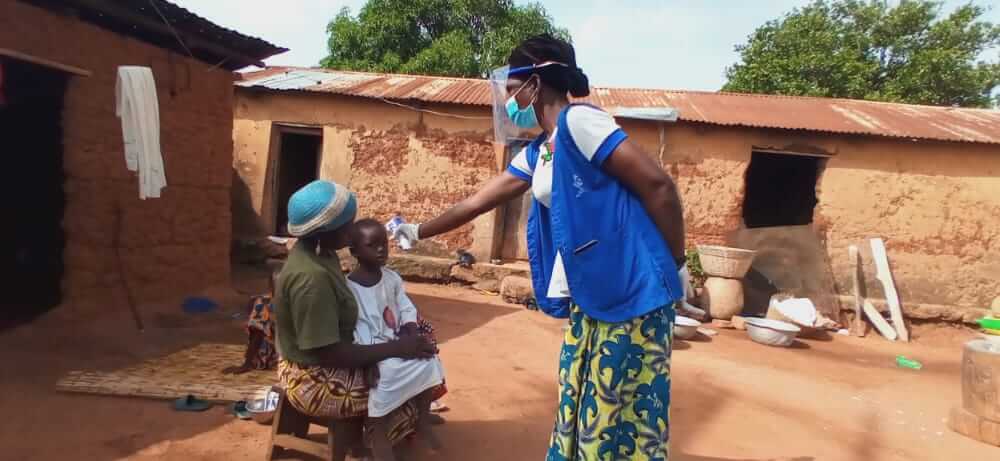In a previous blog post, we discussed the early predictions of the indirect effects of COVID-19 on healthcare access and its potential to reverse decades of progress in reducing maternal and under-five mortality in low- and middle-income countries. Today, we are excited to share the results from our recently published study, which provide valuable insights into how the health system in the Kara region of northern Togo managed to withstand the adverse effects of the pandemic. Although the acute COVID-19 pandemic of 2020 is behind us, this study remains highly relevant as it highlights the importance of preparedness for future health crises.
About the study
Integrate Health launched a comprehensive study to evaluate the impact of COVID-19 on healthcare utilization, particularly focusing on essential maternal and child health services. The study centered on five public sector community-level health centers supported by Integrate Health and 33 Community Health Workers (CHWs) serving approximately 40,000 individuals. It also included 13 comparable health centers not supported by Integrate Health, serving approximately 80,000 people.
Using a mixed methods approach, the study combined quantitative health data from the government information system, programmatic data collected by Integrate Health, and qualitative data from interviews with community members, health center managers, and CHWs. The objective was to understand the extent of the disruptions caused by the pandemic and to identify strategies that maintained essential primary care during this crisis.
Key findings
Contrary to early predictions, the study revealed that the disruptions to maternal and child health services were short-lived and did not significantly impact overall service utilization. Here are the key findings:
Service utilization trends: There was only a temporary decline in the number of visits to Integrate Health-supported health centers at the start of the pandemic in March 2020. By summer 2020, the number of visits had increased, showing a higher trend compared to pre-pandemic levels. Health centers not supported by Integrate Health also saw a similar recovery in service utilization. While the difference in utilization between Integrate Health-supported sites and non-supported sites was not vast, Integrate Health-supported sites showed a higher rate of improvement, reflecting our focus on areas with greater need.
Sustained community-based care: Community Health Workers (CHWs) continued to provide home-based care and proactive consultations throughout the pandemic. The number of CHW visits remained stable, with no significant drop in the monthly counts. This stability was crucial in maintaining healthcare access for those reluctant to visit health centers due to fear of contagion.
Resilience factors: The study identified several factors that contributed to the resilience of the health system:
- Regular and clear communication from CHWs as trusted community sources.
- Rapid implementation of infection prevention and control measures at health centers.
- Collaboration between community leaders and healthcare workers to limit COVID-19 transmission.
- Adherence to adaptions in healthcare delivery, such as conducting consultations outside and maintaining social distancing.
Qualitative insights: Interviews with health center managers, CHWs, and community members highlighted the importance of trust and communication. CHWs played a central role in educating the community about COVID-19, dispelling misinformation, and encouraging preventive measures. Health center managers emphasized the significance of infection control measures and the availability of personal protective equipment (PPE) in ensuring the safety of healthcare workers and patients.
Togo’s strong response to COVID-19
Togo’s proactive response to the pandemic, characterized by quick government action, extensive community engagement, and the leveraging of existing health infrastructure, played a vital role in mitigating the impact of COVID-19. The government’s efforts to adopt protection measures, prepare for vaccine roll-out, and engage with community actors were instrumental in maintaining healthcare delivery during the crisis.
The strong response from Togo can be attributed to the collectivist culture prevalent in many African communities and past experiences with epidemics. Collective action and community solidarity helped in the swift adoption of preventive measures and adherence to health guidelines. Previous epidemics, such as Ebola, had already built a collective knowledge and preparedness that proved invaluable during the COVID-19 pandemic.
The findings from our study underscore the resilience of an integrated primary care system in northern Togo. By maintaining communication, implementing infection prevention measures, and continuing community-based care, health systems can effectively mitigate the impact of pandemics and sustain essential healthcare services. These insights provide valuable lessons for future public health crises, highlighting the importance of investing in community-based primary care systems.

